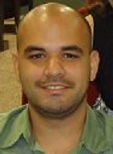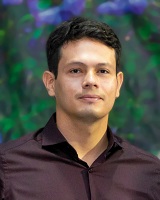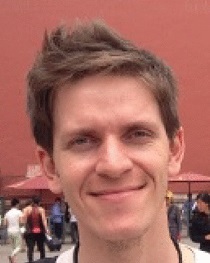KEYNOTE SPEAKERS
KEYNOTE SPEAKERS

Prof. Victor Hugo C. de Albuquerque, Federal University of Ceará, Brazil
Victor Hugo C. de Albuquerque (Senior Member of IEEE) is currently a Professor and Senior Researcher at the Department of Teleinformatics Engineering (DETI)/Graduate Program in Teleinformatics Engineering (PPGETI) at the Federal University of Ceará (UFC), Brazil. He earned a Ph.D in Mechanical Engineering from the Federal University of Paraíba (UFPB, 2010), a MSc in Teleinformatics Engineering from the PPGETI/UFC (UFC, 2007). He completed a BSE in Mechatronics Engineering at the Federal Center of Technological Education of Ceará (CEFETCE, 2006). He has experience in Biomedical Science and Engineering, mainly in the research fields of: Applied Computing, Intelligent Systems, Visualization and Interaction, with specific interest in Pattern Recognition, Artificial Intelligence, Image Processing and Analysis, as well as Automation with respect to biological signal/image processing, biomedical circuits and human/brain-machine interaction, including Augmented and Virtual Reality Simulation Modeling for animals and humans. Prof. Victor is a full Member of the Brazilian Society of Biomedical Engineering (SBEB). He is Editor-in-Chief of the Journal of Biomedical and Biological Sciences, and, also, of the Journal of Artificial Intelligence and Systems, and Journal of Biological Sciences, as well as Associate Editor of the IEEE Journal of Biomedical and Health Informatics; Computers in Biology and Medicine; Frontiers in Cardiovascular Medicine; Computational Physiology and Medicine; Applied Soft Computing; IEEE Access, Frontiers in Communications and Networks, Computational Intelligence and Neuroscience, Measurement, IET Quantum Communication, and he has been Lead Guest Editor of several high-reputed journals, and TPC member of many international conferences.

Prof. Fabrício Gonzalez Nogueira, Federal University of Ceará, Brazil
Fabrício Gonzalez Nogueira is an associate professor in the Department of Electrical Engineering at the Federal University of Ceará (UFC), Brazil. He is the director of the Electrical Engineering Graduation Program (2020-2023) and leads the Laboratory of Automation, Control, and Robotics. He received a B.Sc. in Computer Engineering (2007) and an M.Sc. and a Ph.D. in Electrical Engineering (2008 and 2012, respectively) from the Federal University of Pará (UFPA), Brazil. He developed several Research and Development (R&D) projects involving modeling, stability, and control of power systems, supported by Brazilian electricity generation companies, such as Eletrobras Eletronorte, a major Brazilian electric utility company. During these projects, he coordinated field tests carried out in power plants of the Brazilian Interconnected System, among them the Tucurui Hydroelectric Power Station, the 5th largest hydroelectric plant in the world. His main research topics include adaptive and robust control, robust stability, P-LMIs, LPV identification and control, embedded systems, and robotics. Since 2013 he has been a member of the Brazilian Society of Automatics SBA. In addition, he was the chairman of the major south-American academic events in automatic control, the Brazilian Conference on Automatics (CBA 2022), and the Brazilian Symposium on Intelligent Automation (SBAI) in 2013.

Prof. Joao Paulo Papa, Sao Paulo State University, Brazil
J.P. Papa received his B.Sc. in Information Systems from the Sao Paulo State University, Brazil. In 2005, he received his M.Sc. in Computer Science from the Federal University of S\~ao Carlos, Brazil, and in 2008, he received his Ph.D. in Computer Science from the University of Campinas, SP, Brazil. During 2008-2009, Prof. Papa worked as a post-doctorate researcher at the same institute, and during 2014-2015 he worked as a visiting researcher at the Center for Brain Sciences, Harvard University. Currently, he is an Associate Professor at the Computer Science Department, Sao Paulo State University, IEEE Senior Member, Alexander von Humboldt Research Fellow, and his research interests include machine learning, pattern recognition, and image processing.
